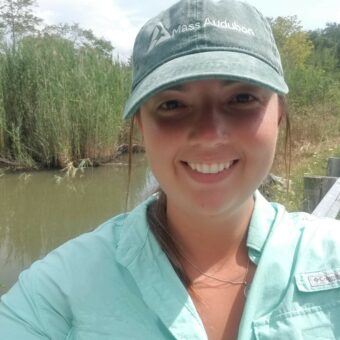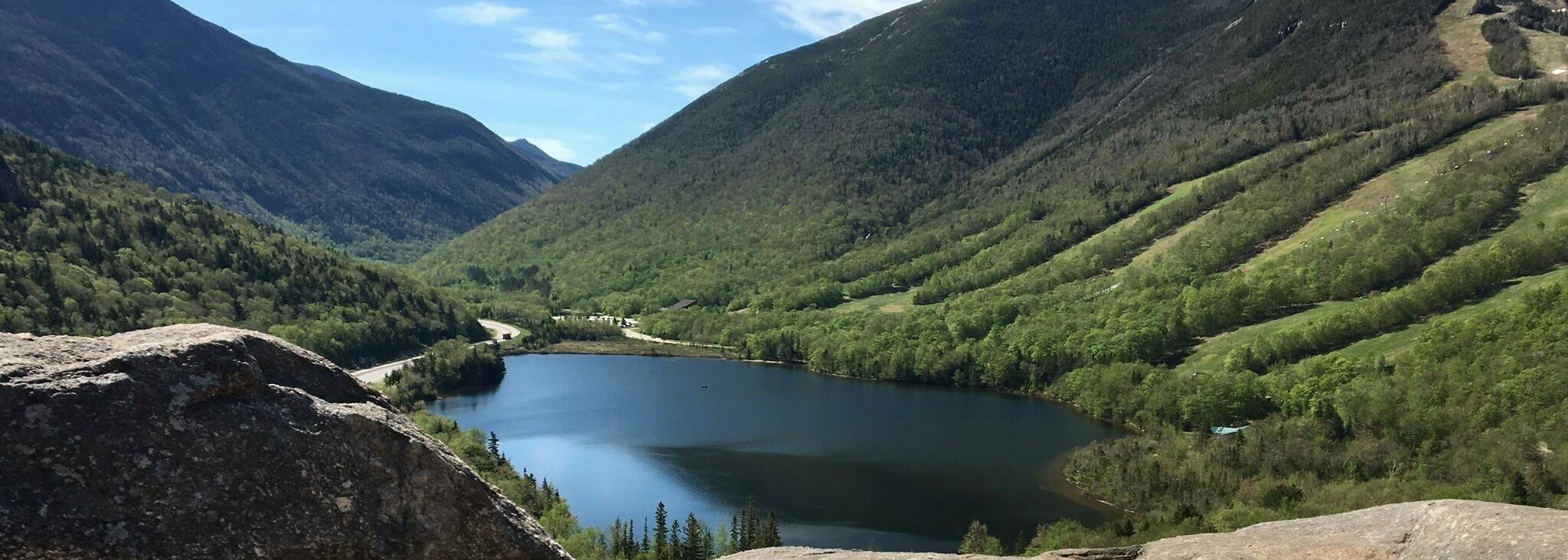Last November, Brea Arvidson joined NH LAKES as the new Director of Programs. Brea’s connection to the Granite State and passion for lake science will help in our response to the urgent needs and threats our lakes face.

We asked Brea about her history with New Hampshire’s lakes and how her expertise can help restore lake health.
How did you first become interested in lake science?
My curiosity about nature started in childhood—making mud pottery at the wetland edge, observing tadpoles from the vernal pool in my backyard, and pulling apart cattail leaves to see how many pieces I could make. Almost every experience I’ve had returns to water—freshwater ecosystems are where I feel at home.
As I got older, so did my investigations into the plants and animals that were my companions growing up. Now, I just see things a little differently than as a kid—that cattail is more than just its leaf. It’s a pillow, nest, snack, basket, bed, salve, and service provider all wrapped up in one lake shore plant.
What’s your favorite lake in New Hampshire?
There are too many to choose from! My favorites support rare, protected aquatic plants and lots of secluded wetlands. I find lake science fascinating, so finding my place in my home state with NH LAKES couldn’t make more sense.
How have you seen our lakes change in your time?
I’m worried about the increase of cyanobacteria blooms, many of which are toxic, and the continued spread of invasive species. People come to New Hampshire to enjoy its stunning scenery and beautiful lakes, and we must care for both land and water. The health of our lakes is directly connected to the well-being of our communities, our state’s economy, and our individual properties. We can take action to ensure our lakes remain a treasure for current and future generations.
What can the average citizen do to help their favorite lake?
Any small action can help! Reducing driveway salting or exchanging lawns for native gardens and mature trees makes a difference. And getting neighbors, family, and friends to do the same adds up. After reading this, I encourage everyone to pause for a moment to think about how their property fits within the local ecosystem. We share our acreage with the natural world, and the natural world depends on us to take care of it.
Please join us in welcoming Brea! She looks forward to meeting you. She can be reached at 603.226.0299 or barvidson@nhlakes.org.


 by Martech Consulting
by Martech Consulting